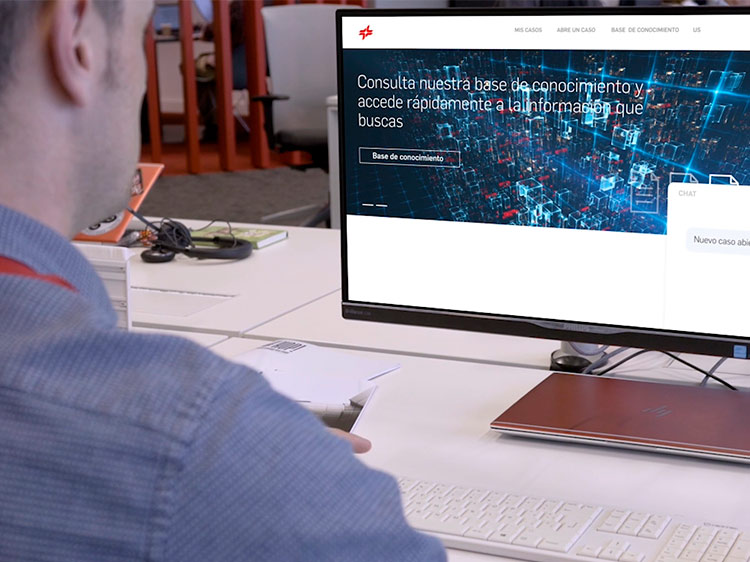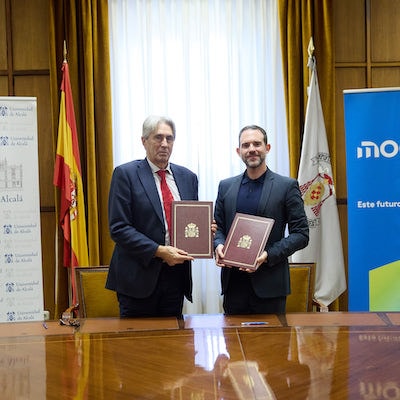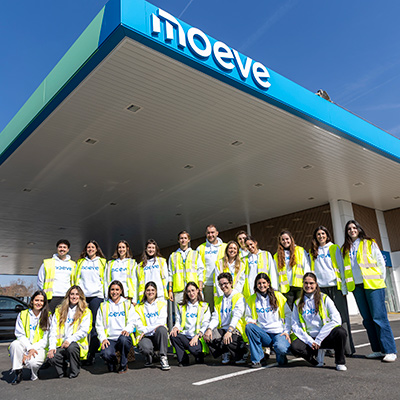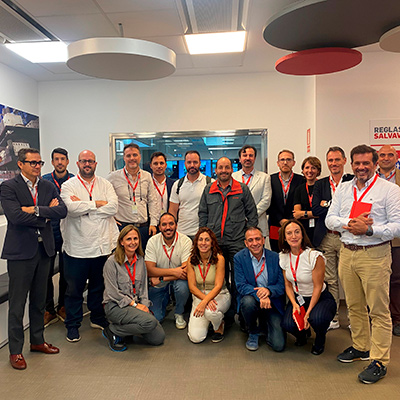- The company will make the tool available to its 8,500-plus employees in Spain
- The objective is to optimize the relationship between staff and the Human Resources department in order to enhance the employee experience
- This assistant is based on IBM’s Watson technology, the most advanced business intelligence platform available
- With this step, Cepsa becomes one of the first companies to introduce artificial intelligence into its internal employee management processes
Within the framework of its digital transformation strategy, Cepsa has developed a pioneering project in Spain which will enable its employees to carry out their regular consultations in relation to human resources using a virtual assistant available on the company’s intranet. This is the most extensive application of IBM Watson artificial intelligence to Human Resources processes in the whole of Spain, and it lays the foundations for Cepsa’s development into a cognitive company.
This platform will enable users to search for information at any time, on any day and from any place, and will streamline the relationship between the company’s employees and Human Resources department.
The platform has a virtual assistant, which has been christened ‘MAX’, and which has been developed using IBM’s Watson technology. The assistant is a “chatbot”, trained to answer variations on questions relating to a number of different topics. Initially, it will deal with queries relating to applications for licenses and permissions, teleworking, health insurance, advances, and loans. Over 5,000 formulations of different questions on these topics have been prepared for this purpose.
Following its initial development and a two-month trial involving 400 of the company’s employees, Cepsa will complete the implementation of the system during 2019 for its 8,500-plus Spanish employees.
The main aim of this project is to supplement personal support to staff members by means of a virtual assistant which will speed up and automate the most frequently repeated queries and tasks. Thanks to this technology, the company’s Human Resources managers will be relieved of the most routine tasks and can now devote more time to work that demands more individual, personal attention and which contributes greater added value — thereby optimizing the relationship between staff members and the Human Resources department, streamlining the department’s activity, and making it more flexible, human, and efficient.
At the same time, this project represents an advance in the structuring and digitalization of the Human Resources department’s expertise. It will improve the decision-making process, as decisions will now depend on a more consistent and consolidated (data-driven) basis, thanks to the traceability offered by the latest data analysis technology. In addition, the platform will enable the Human Resources department to acquire a deeper insight into the concerns of employees, and therefore be able to offer them better, more personalized, and more focused support.
The assistant has been developed using IBM’s Watson Assistant technology, the most advanced artificial intelligence technology available to create dialogue solutions for business, which until now has not been used in the field of Human Resources in Spain. The artificial intelligence system has the capacity to answer (within just a few seconds) questions formulated in natural language, thanks to the technology’s advanced ability to analyze large quantities of data. In addition, this assistant learns from each experience (through guided processes) so its knowledge will expand as it is enriched by new information and new questions.
For Carlos Morán, Cepsa’s Human Resources manager, “with this initiative we are adopting the latest artificial intelligence technology to continue improving the experience of our employees and to gain a deeper insight into their concerns — at the same time as reducing bureaucratic procedures and freeing up more time for giving personal attention to those issues that require it. Through digital transformation we are driving forward our culture of innovation, by adopting new technologies and more efficient models of working”.
José Pablo Gómez Uroz, the manager of IBM’s Telecommunication and Utilities department, said, “Artificial intelligence is going to be a fundamental element in the development of innovation and increased efficiency in organizations, thanks to its potential for transforming business processes and enhancing the capacity of employees. We are proud to assist Cepsa in embarking on this venture to introduce AI into its digital transformation strategy”.
Cepsa will continue developing new functionality for this platform, so that it can deal with queries regarding pay, requests for training and holidays, and other matters. The company is also looking into the possibility of incorporating this technology into the processes of other areas of its operations.
Digital transformation is an essential step in achieving the company’s strategic plan for 2030. With the focus on people, the company has set up 14 thematic tracks within which it has identified 450 projects which would bring about its digital transformation, thereby enhancing its business and operational areas.




